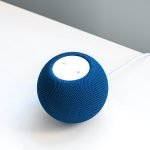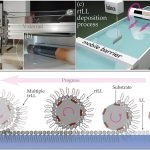Buzzing wearable gadget could help astronauts find their way in space
Imagine floating in space where up and down don’t mean much, and the usual ways we tell left from right don’t work.
This can be...
New phone case makes touch screens easy for everyone
Have you ever struggled with using a touch screen at a self-service kiosk or ATM?
Imagine how hard it could be for someone with visual...
Crescendo: The future of fast wireless access
Have you ever had difficulty connecting to the internet because there were too many devices trying to use the same wireless frequency?
Imagine a world...
Your smart speaker data is used in ways you might not expect
Smart speakers offer amazing convenience—from playing your favorite tunes to re-ordering toilet paper—with only a simple voice command.
But that convenience can come with a...
This camera could capture the tiniest specks of light with 400,000 pixels
Have you ever tried taking a photo in the dark and ended up with just a black screen?
Well, scientists are working on that problem,...
World’s largest cardboard drone takes to the skies!
In an exciting turn of events, engineers from The University of Manchester have showcased a giant drone made from foamboard—a material similar to cardboard.
This...
Wrist-tapper wearable: A new way to navigate!
Imagine a piece of clothing that can gently tap you on the wrist and tell you where to go! Sounds futuristic, right? Well, that's...
New technique creates customized thin films for electronics
In a breakthrough that could reshape modern electronics, researchers have developed a new method for making ultra-thin films.
Led by the Leibniz Institute of Photonic...
Scientists create new smart materials for wearable health trackers
We all know someone who sports a fitness tracker or a smartwatch.
These tiny gadgets that you wear, like wristbands or watches, help track things...
Scientists create new cameras that can spot hidden aircraft damage
Every day, millions of people take to the skies on airplanes.
And just like cars need regular check-ups, airplanes do too.
It's super important to make...








